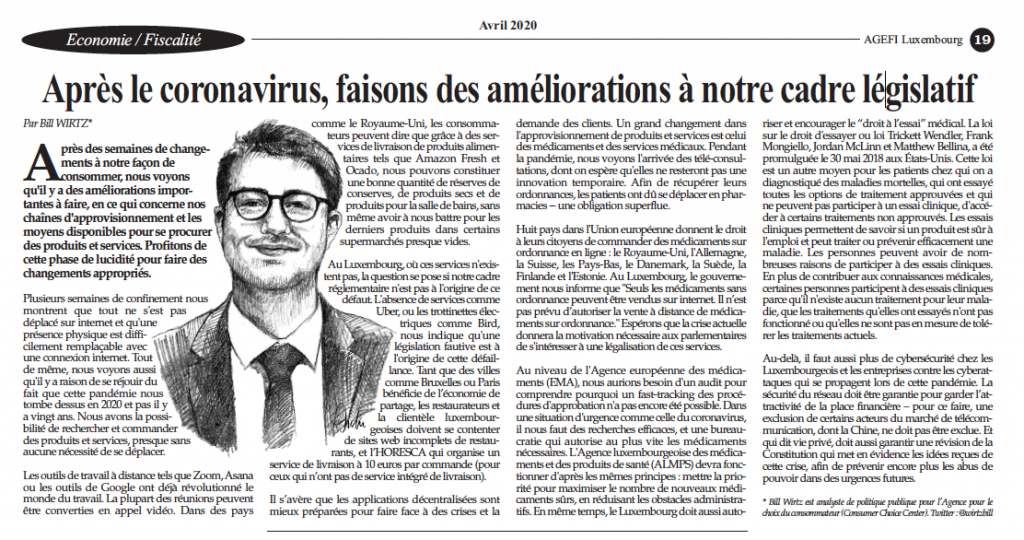The folly of opposing patents on a Covid vaccine
Doctors Without Borders does incredible work in the interest of patients around the globe. It has an exemplary track record of bringing doctors to the front lines of combat zones, famines, and pandemics — helping those patients that are left alone and victims of large crises.
During the 2014-2015 Ebola epidemic in West Africa, MSF (to use its French acronym) was the leading organisation fighting for patients — far more so than the World Health Organization, which is bureaucratic and has slow response times. For that and its previous 48 years of service, it needs to be applauded.
However, its current opposition to patents on drugs treating Covid-19 misunderstands the importance of intellectual property rights for medical innovation.
MSF is also running a campaign on access to medicines which distorts the realities of the drug market, while calling for solutions that would harm scientific innovation. The “Campaign for Access to Essential Medicines” wants to increase the availability of medicines in developing nations by addressing drug pricing and intellectual property rights. In the eyes of MSF, producers and researchers are enriching themselves off the backs of those who can least afford it.
What MSF gets wrong is that intellectual property rights and patents do not hinder innovation but actually enable medical progress.
Dozens of pharmaceutical companies have not only started searching for a vaccine against Covid-19 but have also thrown a lot of resources into getting millions of tests produced, looking at what existing drugs might be able to treat the disease, and donating money and materials to health systems across the world.
In fact, the philanthropic efforts of pharmaceutical companies are impressively underreported. By any standard, these companies are offering charitable support, including to organisations working with patients on the ground. However, Doctors Without Borders has said that it will not accept in-kind donations of drugs from pharmaceutical companies, but instead purchase them at market prices. Donors to MSF would probably be stunned by the idea that their donations are spent on drugs that MSF could have got for free.
While the industry also cares about access a lot, dysfunctional health systems and infrastructure are often the barrier between a patient and a treatment or vaccine. We need to realise that charitable acts are only possible if profits are also encouraged. Pharmaceutical companies develop drugs, protect their inventions and make profits. If you cut out patent rights from the equation, the incentive to innovate disappears, and life-saving medicines that cost billions to develop will stay off the market.
Doctors without Borders calls for preventing drug profiteering on the novel coronavirus, while ignoring the significant donations being made to help stop this virus. In fact, most efforts to combat the disease are public-private partnerships, much like the fight against Ebola was.
Remember too that stopping companies making a profit from drugs both eliminates incentives and ignores both the risks and the costs of working on a new drug. Who are we to tell lab workers to come into work every day for free, when there are risks associated with going to work and interacting with fellow employees?
The idea of so-called compulsory licenses, which de facto takes a patent away from a manufacturer in one country and gives it to another, might even delay the introduction of a Covid-19 vaccine even more. It takes know how and supply chains to manufacture and deliver a working vaccine. It is questionable whether a vaccine produced under compulsory licensing would actually be less expensive than the original one.
Much can be said about drug manufacturing and access to essential medicines. But a proper debate needs to be held on the basis of certain basic facts. Among these is that pharmaceutical companies invest vast sums of money to provide life-saving medicines, and those same companies have also taken action to help those in the most need. With Covid-19, we are facing one of the biggest public health crises ever – Innovation and medical breakthroughs are needed now more than ever. Undermining the ownership of innovations will definitely not lead to the breakthroughs that will ultimately get us out of this nightmare.
Originally published here.
The Consumer Choice Center is the consumer advocacy group supporting lifestyle freedom, innovation, privacy, science, and consumer choice. The main policy areas we focus on are digital, mobility, lifestyle & consumer goods, and health & science.
The CCC represents consumers in over 100 countries across the globe. We closely monitor regulatory trends in Ottawa, Washington, Brussels, Geneva and other hotspots of regulation and inform and activate consumers to fight for #ConsumerChoice. Learn more at consumerchoicecenter.org







